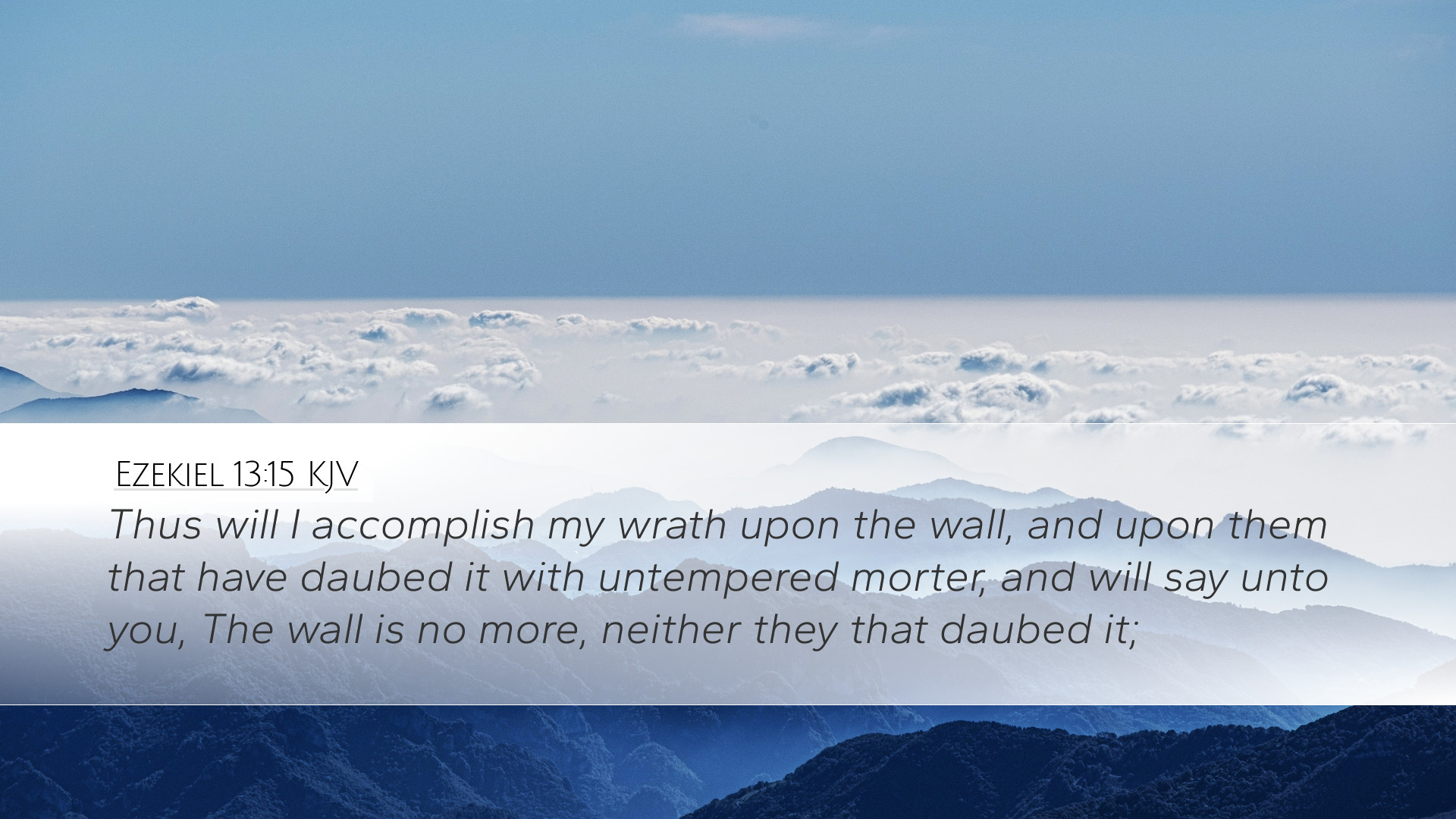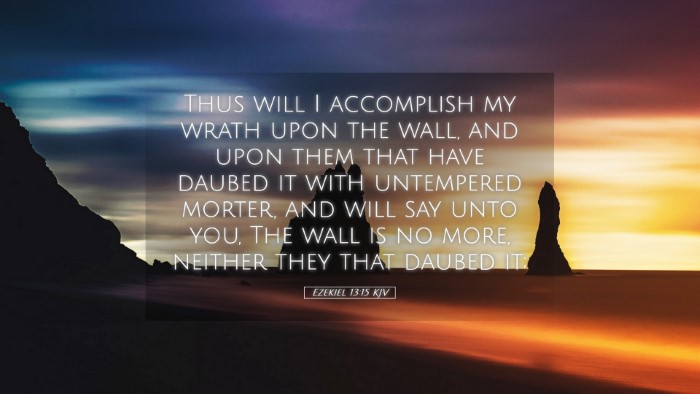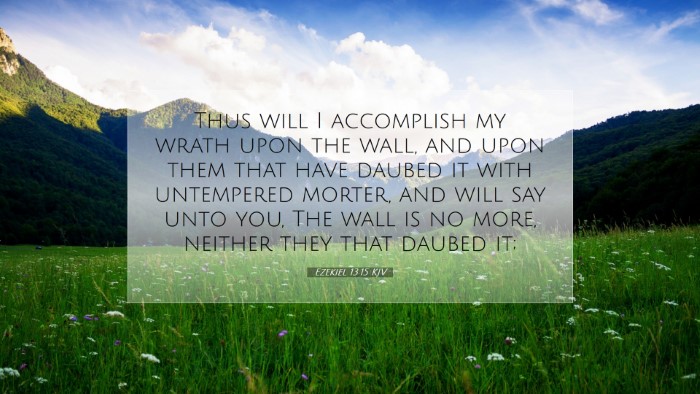Ezekiel 13:15 - A Commentary
Verse: "Thus will I accomplish my wrath upon the wall, and upon them that have daubed it with untempered morter: and say unto them, The wall is no more, neither they that daubed it;"
Context and Background
The Book of Ezekiel serves as a critical message from God to His people during their exile in Babylon. Ezekiel, called to be a prophet, conveys God's judgments and future promises, emphasizing the need for repentance and adherence to divine truth. Ezekiel 13 addresses false prophets and leaders in Israel who mislead the people by providing false security and comfort through empty prophecies.
Analysis of the Verse
This verse acts as a climactic statement against the false prophets who create a façade of safety with their deceptive messages. The “wall” symbolizes the protection that the people believe they possess, while the “untempered mortar” signifies the inadequate and weak assurances provided by these deceivers.
Matthew Henry's Commentary
Henry observes that the wall represents a false sense of security. The daubing with “untempered mortar” refers to superficial repairs made to a structure that holds no real integrity. He emphasizes that God’s wrath will ultimately destroy the false protections that these prophets have constructed.
Albert Barnes' Commentary
Barnes highlights the metaphorical language used by Ezekiel as a means to demonstrate the futility of the false prophets' danger. He explains how the phrase "accomplish my wrath" indicates that God will bring an end to these deceptions, showing that divine judgment is not only imminent but necessary for the restoration of true faith.
Adam Clarke's Commentary
Clarke elaborates on the serious implications of the text. He notes that the “wall” represents national security, while the untempered mortar signifies the unstable nature of their claims. Clarke asserts that God’s declaration that “the wall is no more” serves as a warning that the false claims of safety will be completely obliterated and that the consequences extend beyond the physical realm to the spiritual lives of the people.
Theological Implications
This verse prompts a profound reflection on the nature of prophecy and its authenticity. The untempered mortar metaphorically questions the integrity of theological assertions and encourages leaders to pursue faithful, sound doctrine. The false prophets, by presenting a false narrative of peace, contradicted the realities of the coming judgment.
Spiritual Application for Believers
- Understanding God's Judgment: Believers are reminded of the seriousness of misleading teachings and the divine wrath that accompanies falsehood.
- Encouragement to Seek Truth: Congregants should actively pursue sound doctrine and teachings that align with the true Word of God.
- Role of Pastors and Leaders: Spiritual leaders are called to build their ministry upon the firm foundation of Scripture, ensuring that their teachings provide genuine support to their communities.
Conclusion
Ezekiel 13:15 serves as a grave warning against the dangers of spiritual complacency and false assurances offered by unfaithful leaders. The thorough examination of this verse through the lenses of notable commentaries illustrates the timeless importance of truth in proclaiming God’s Word. In the contemporary context, it beckons pastors and church leaders to remain vigilant, ensuring their messages are rooted in biblical truth and reflect the character of God as a righteous judge who desires genuine reconciliation and restoration.


